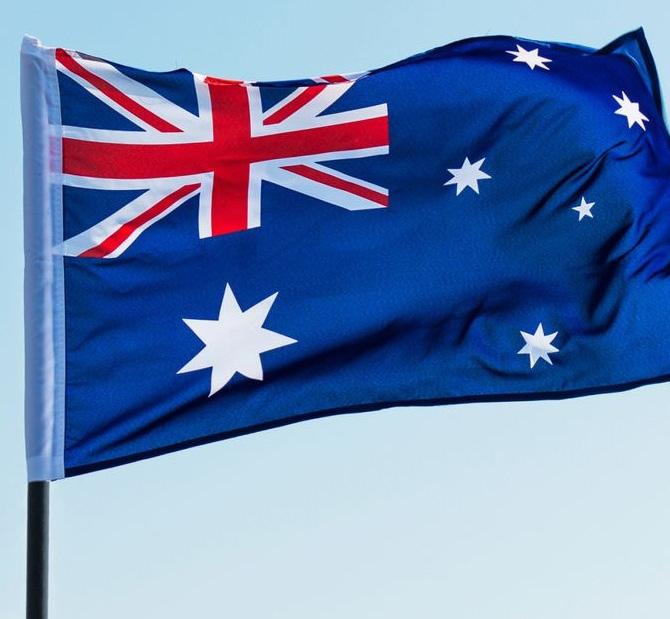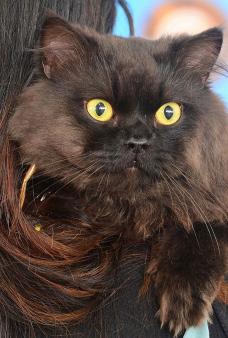
6 minute read
Australia has 50% chance of sliding into recession this yr: Bank
cent is "still too high".
In light of the RBA's new decision, Aird expected a further 25-basispoint increase for the cash rate to reach 4.35 per cent.
Advertisement
Australian govt to crackdown on migrant worker exploitation
Weaker growth may also bring about higher unemployment, as the unemployment rate is estimated to jump to 4.4 per cent by end-2023 and touch 4.7 per cent by mid-2024.
current situation as a "crisis of exploitation".
"When migrant workers are being underpaid - it hurts all of us, driving wages and conditions down for everyone," he said in a statement.
Canberra, June 9 (IANS) The Commonwealth Bank of Australia (CBA) on Friday downgraded its economic forecasts following a recent cash rate increase, saying the country has a 50 per cent chance of sliding into recession this year.
"We put the odds of a recession in 2023 at 50 per cent as the lagged impact of the RBA's rate increases continues to drain the cash flow of households that carry debt," Gareth Aird, CBA's head of Australian economics, wrote in the newly issued Economic Insights.
On Tuesday, the Reserve Bank of Australia (RBA) raised the cash rate target by 25 basis points to 4.10 per cent, with Governor Philip Lowe noting that the annual inflation sitting at 7 per
"The risk is a 25bp (basis point) rate hike earlier in July. There is also a risk of 25bp rate rises in both July and August, which would take the cash rate to 4.6 per cent," Aird said, forecasting the timing of the start of rate cuts will be from the fourth quarter of 2023 to first quarter of 2024.
As Australia is having a "deeply restrictive" monetary policy, the CBA expert held a gloomy view of the future economic growth.
According to the new analysis, the annual gross domestic product (GDP) growth is expected to slow to 0.7 per cent in the fourth quarter.
With annual population growth likely to reach 2 per cent in 2023, Australia is forecast to be in a per-capita recession for the remainder of this year.
Aird also mentioned that monetary policy works with a lag. "As the lagged impact of rate rises continues to hit home borrowers, mortgage repayments will rise to a record high as a share of household income. This will have a negative impact on household consumption," Aird noted. However, Aird also spoke of some "light at the end of the tunnel", as he predicted a 125-basis-point easing in interest rates to arrive in early 2024.
"As interest rates are cut, it will free up cash for those borrowers that have a mortgage. And the demand for credit will begin to lift. Momentum will start to pick up and the upward trend in the unemployment rate will wane. Consumer sentiment and spending will lift," said the expert.
Australia’s economic growth slows amid inflation, cost-of-living pressures
Canberra, June 7 (IANS) The Australian Bureau of Statistics (ABS) on Wednesday published national accounts data for the first quarter of 2023, revealing that economic growth has slowed amid headwinds from high interest rates and inflation.
The data revealed that the gross domestic product (GDP) rose 0.2 per cent between January and March and by 2.3 per cent in the 12 months to the end of March, marking a slowdown from the 0.6 per cent growth in the final quarter last year and lower than the quarterly growth forecast by some economists, reports Xinhua news agency.
"This is the sixth straight rise in quarterly GDP but the slowest growth since the Covid-19 Delta lockdowns in September quarter 2021," Katherine Keenan, ABS head of National Accounts, said in a media release.
The household saving ratio fell from 4.4 per cent in the last quarter of 2022 to 3.7 per cent, the lowest figure since 2008.
"The household saving ratio fell to its lowest level in nearly 15 years," Keenan said.
"This was driven by higher income tax payable and interest payable on dwellings, and increased spending due to the rising cost of living pressures."
Treasurer Jim Chalmers said that these figures "are not surprising" given the significant headwinds from higher interest rates, high inflation, and a slowing global economy.
He said the numbers confirm what Australians already know, that household budgets are under pressure from rising interest rates and higher cost of living.
According to ABS, household consumption grew by just 0.2 per cent in quarter, contributing just 0.1 percentage points to growth.
"We understand that inflation, higher interest rates and costof-living pressures are not only straining household budgets but slowing growth as well," Chalmers said in a media release.
"We're providing responsible costof-living relief without making the inflation challenge worse. The Reserve Bank of Australia (RBA) Governor has already made it clear that the budget is addressing inflation, not adding to it."
The accounts were released one day after the RBA lifted the official interest rate to 4.1 per cent, the 12th rise in about 13 months as it seeks to bring inflation under control.
Australian govt to outlaw Nazi hate symbols
Canberra, June 8 (IANS)
Australia's Attorney-General Mark Dreyfus on Thursday announced the government will introduce legislation next week to criminalise public displays of the Nazi hate symbols and ban the trade of items with the symbols imprinted.

Under Australia's CounterTerrorism Legislation
Amendment Bill, anyone caught breaching the new laws could face up to 12 months in jail, reports Xinhua news agency.
The ban includes, but is not limited to, the trade and public display of flags, armbands, t-shirts, insignia and the publication of symbols online promoting Nazi ideology.
Dreyfus said there was been a
Canberra, June 5 (IANS) The Australian government on Monday announced a crackdown to better protect temporary visa holders from exploitation and employers who are caught violating the new federal laws could face criminal penalties.
According to a report published by thinktank the Grattan Institute in May, one in six recent migrants to Australia is paid less than the minimum wage, reports Xinhua news agency.
Under the changes, which will be introduced to parliament within weeks, coercing someone into breaching their visa condition will be made a criminal offence. Employers who are found to have exploited migrants will be prohibited from further hiring workers on temporary visas. Minister for Immigration Andrew Giles described the
"These reforms will help workers speak up and target those employers who do the wrong thing."
A section of the Migration Act will also be scrapped to make it easier for visa holders to report exploitative behaviour.
The Australian Border Force (ABF) will receive an extra A$50 million ($32 million) in funding for enforcement activities.
"Over the last 10 years our migration system has drifted deeper and deeper into reliance on low-paid temporary migrant workers who we know are routinely exploited," Home Affairs Minister Clare O'Neil said.
"We are in consultation on systemic changes to our migration system which will ensure it works in the interests of Australian workers and businesses, and we are also doing the work necessary to ensure that no one who comes to this country is exploited or abused."
Pet cats killing 323 mn native Australian animals annually: Report rise in the public display of these symbols and tackling far-right violent extremism is a priority for the Australian government.
"The jump in wildlife kills reflects the pandemic pet boom that saw pet cat numbers reach 5.3 million and is an alarm bell for governments to enact responsible pet ownership laws, including 24/7 cat curfews," Sarah Legge, an ecologist from Charles Darwin University and spokesperson for the Biodiversity Council, said in a statement on Friday.
Canberra, June 9 (IANS)
Domesticated cats kill 323 million native Australian animals every year, a new research report has revealed.
According to the new report from the Biodiversity Council, Invasive Species Council, and Birdlife Australia, the figure represents an increase of 34 per cent from 241 million in 2020 after a surge in pet ownership during the coronavirus pandemic, reports Xinhua news agency.
About one-third of Australian households have a pet cat and half of those have two or more.

Authors of the report called for Australians to take greater responsibility for their pets, with 71 per cent of cat owners still allowing them to roam freely.
Residents of the Australian Capital Territory (ACT) are required by law to contain their cats at all times while in Victoria approximately half of local councils have containment rules. However, in other states, legislative barriers have prevented similar rules from being introduced.
The Invasive Species Council claims that a 24/7 cat curfew in the greater Sydney area alone would save 66 million native animals every year.
The 110 native animals killed on average by each roaming and hunting pet cat every year include about 40 reptiles, 38 birds and 32 mammals.
"We can't change the behaviour of cats, but we can support better choices by cat owners," Holly Parsons from Birdlife Australia said.









